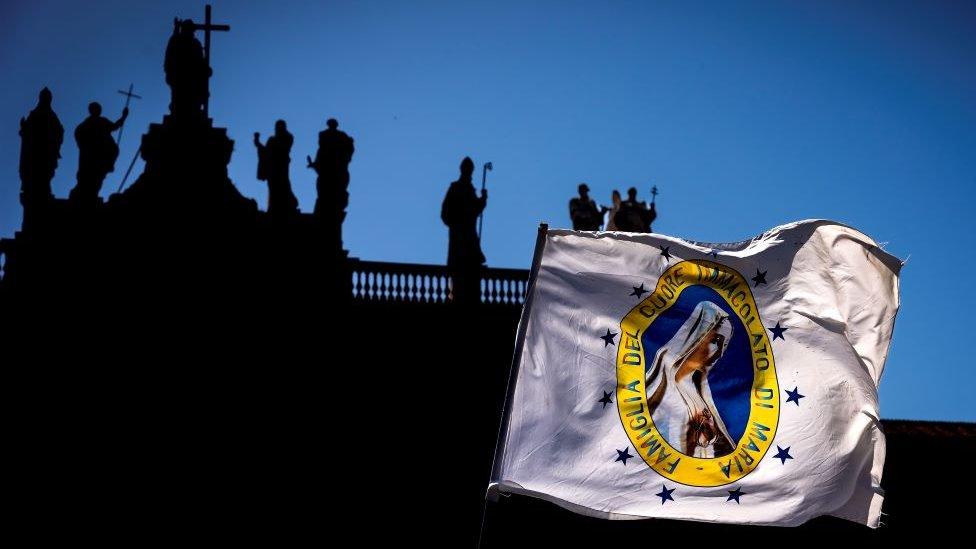Roe v Wade: Women tell of abortions to protest Supreme Court ruling
- Published
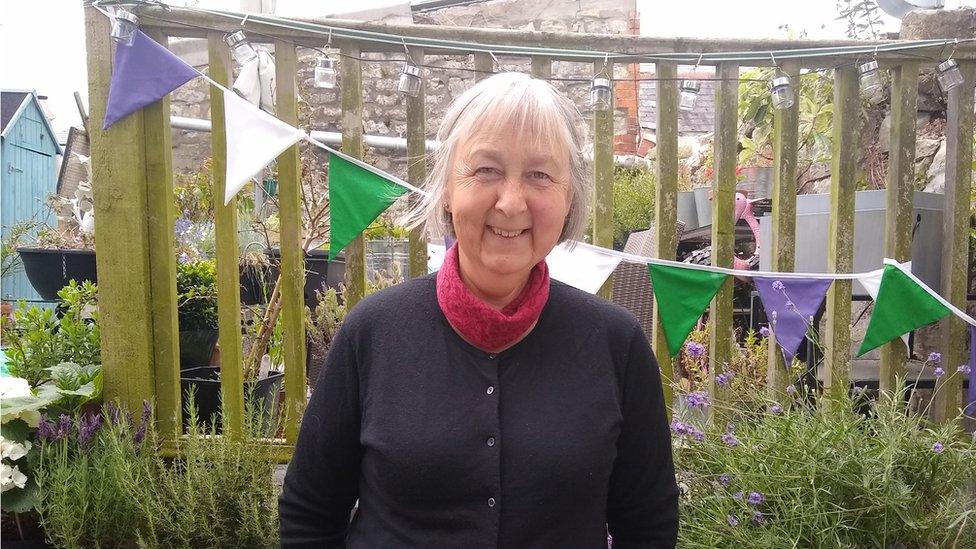
Bronwen said the overturning of Roe v Wade was "barbaric"
Women have been talking about their abortions after the right to terminate unwanted pregnancies was removed in the US.
Bronwen Davies, 71, had three abortions in her 20s and 30s and said she had "never felt ashamed".
She said the Supreme Court's decision to overturn Roe v Wade was "barbaric".
Natasha Davies, 34, who sought an abortion in her 20s, said the ruling had left her "horrified, angry, upset".
'Tremendous stigma'
Bronwen, who has two grown-up children and lives in Cardiff, said: "Now that I'm older the least I can do for younger women is to speak up about my experiences."
She said: "There's still a tremendous stigma attached to having an abortion [and] talking about it.
"I've actually had three and that isn't something that I've said to a lot of people because I know there is a view that's still very prevalent that there's something wrong with you if you have three abortions."
Bronwen said she had unwanted pregnancies at 26, 29 and 31.
She had been medically advised against taking the contraceptive pill, woman of her generation did not have access to the same range of contraceptives and those available were not fool-proof, she said.
"I did get pregnant three times in situations where I didn't want yet to become a mother," she said.
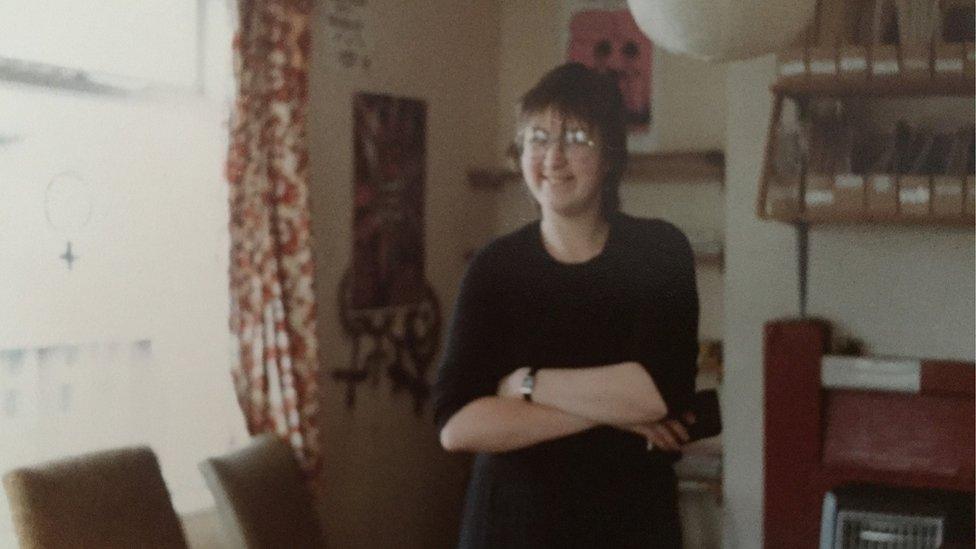
Bronwen has chosen to speak about the abortions she had in her 20s and 30s to support younger women
She was with a steady boyfriend when she first became pregnant but was "not ready to settle down" and so it was "a tremendous shock".
"It just wasn't the right time for me to be pregnant and it wouldn't be doing any favours to the child to have a child at that point," she said.
She said when she told her GP she wanted an abortion she refused.
"She laughed at me and said 'oh no, I don't think so, you're a perfectly healthy young woman, just go away and have your baby'," she recalled.
She then went to a clinic run by charity British Pregnancy Advisory Service, in Cardiff, and had to go to England for a surgical abortion.
"I don't want to be judged for it, well, people can judge me if they like, but I do not feel ashamed," she said.
'Women will die'
Bronwen is part of Abortion Rights Cardiff, which was formed in 2013 by women who protested against an anti-abortion group who had targeted an abortion clinic.
She said tears had been shed in the group following the overturning of Roe v Wade.
"Even though we knew this announcement was coming, when we heard it that afternoon we were quite tearful," she said.
"It's barbaric and it turns the clock back...
"Women will still have abortions, but they won't be legal, they won't be safe and women will die."
She said she had heard all the arguments against abortion but women should have complete autonomy over their own bodies.
"It's not a choice anyone can make for anyone else, it is a choice you must make for yourself," she said.
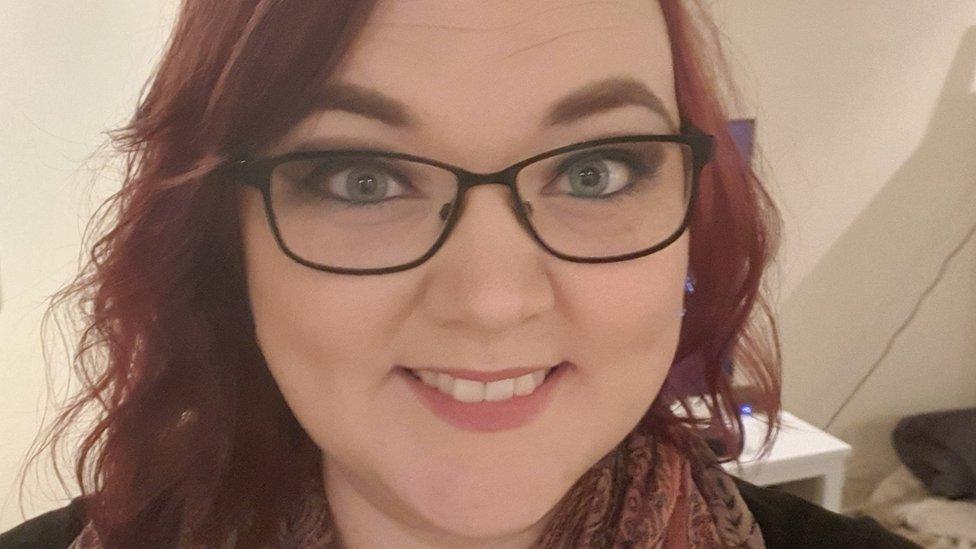
Natasha says events in the US should be "condemned in the strongest possible terms"
Natasha, 34, also from Cardiff, sought an abortion after her contraception failed in her 20s.
"The decision to seek an abortion wasn't a difficult one for me to get to," she said.
"Personally I don't want kids, I've never wanted kids and I certainly didn't want kids when I was in my 20s."
'Horrifying'
She said her experience of trying to get an abortion was "not pleasant".
Firstly, her GP assumed she wanted to go ahead with the pregnancy and started talking about booking in a dating scan, external and then she learned two doctors would have to approve the abortion and there was a six-week wait before she could see the second doctor.
"I was like 'why? This is my decision'," she said.
"It was horrifying.
"I already felt like my body had betrayed me because it wasn't planned, I wasn't in control of it, and the idea that I would have to perhaps wait six weeks when I could then start getting morning sickness and other sort of pregnancy symptoms was horrifying."
While she was waiting for the second appointment, she had a miscarriage.
Her personal experience has made watching events in the US difficult.
"It's terrifying and it leaves me and a lot of my friends nervous about what could happen closer to home," she said.
"[I'm] horrified, angry, upset, I mean my heart just genuinely breaks for the women who overnight have had access to what is a quite fundamental healthcare ripped away from them...
"Even though we're not in America, I think it's so important that there's a strong message from all around the world that this has been condemned in the strongest possible terms."
Women's Equality Network (WEN) Wales has sent a letter to Wales' Minister for Social Justice Jane Hutt MS calling on her to "publicly condemn this appalling human rights violation" and make representation to the UK government that Northern Ireland implements the right to abortion.
The letter also calls for buffer zones around clinics providing abortion care and improvements to abortion provision in Wales.
What's happened in America?
The US Supreme Court has opened the door for individual states to ban or severely restrict the ability for pregnant women to get abortions.
In 1973, the court had ruled in Roe v Wade that pregnant women were entitled to an abortion during the first three months of their pregnancy, while allowing for legal restrictions and bans in the second and third trimester.
Now the court has overturned that earlier ruling, effectively making it possible for states to ban abortions earlier than 12 weeks.
Abortion will not automatically become illegal in the US - but individual states will now be allowed to decide if and how to allow abortions.
What do anti-abortion campaigners want?
The decision was met with elation by anti-abortion campaigners.
They argue that every human being, including an embryo or fetus, has the right to live and to reach their potential and point to alternatives to abortion, such as adoption.
Although abortion is a divisive issue in the US, a recent Pew survey found 61% of adults said abortion should be legal all or most of the time, while 37% say it should be illegal all or most of the time.
What is the abortion law in Wales, England and Scotland?
Abortions can take place in the first 24 weeks of pregnancy in Wales, England and Scotland and have to be approved by two doctors.
Abortions after 24 weeks are allowed only if the woman's life is in danger, there is a severe fetal abnormality or the woman is at risk of grave physical and mental injury.
Related topics
- Published29 June 2022
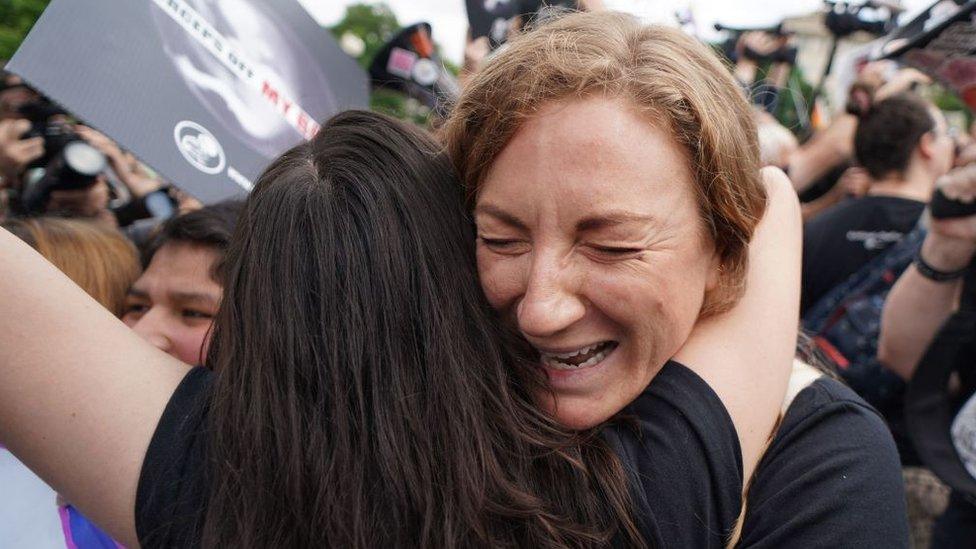
- Published24 June 2022
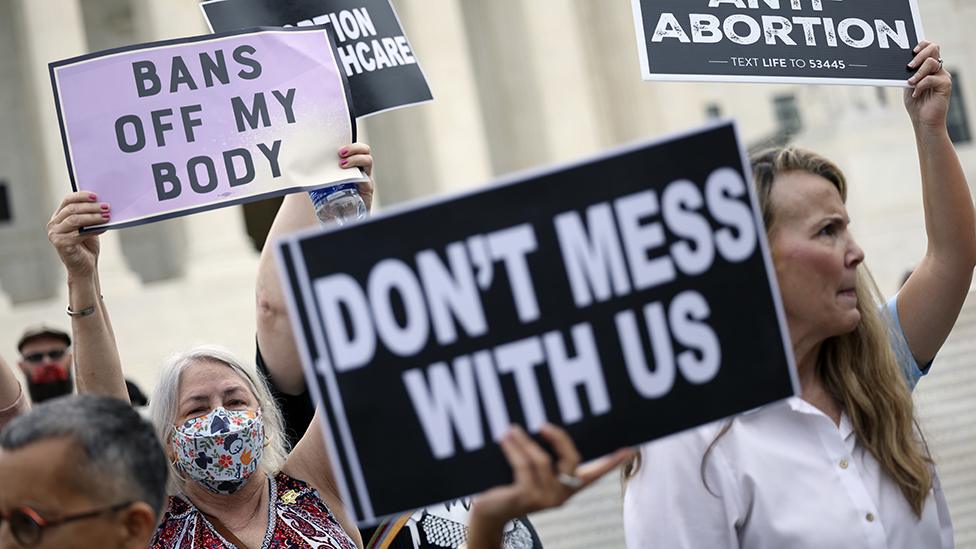
- Published25 June 2022
